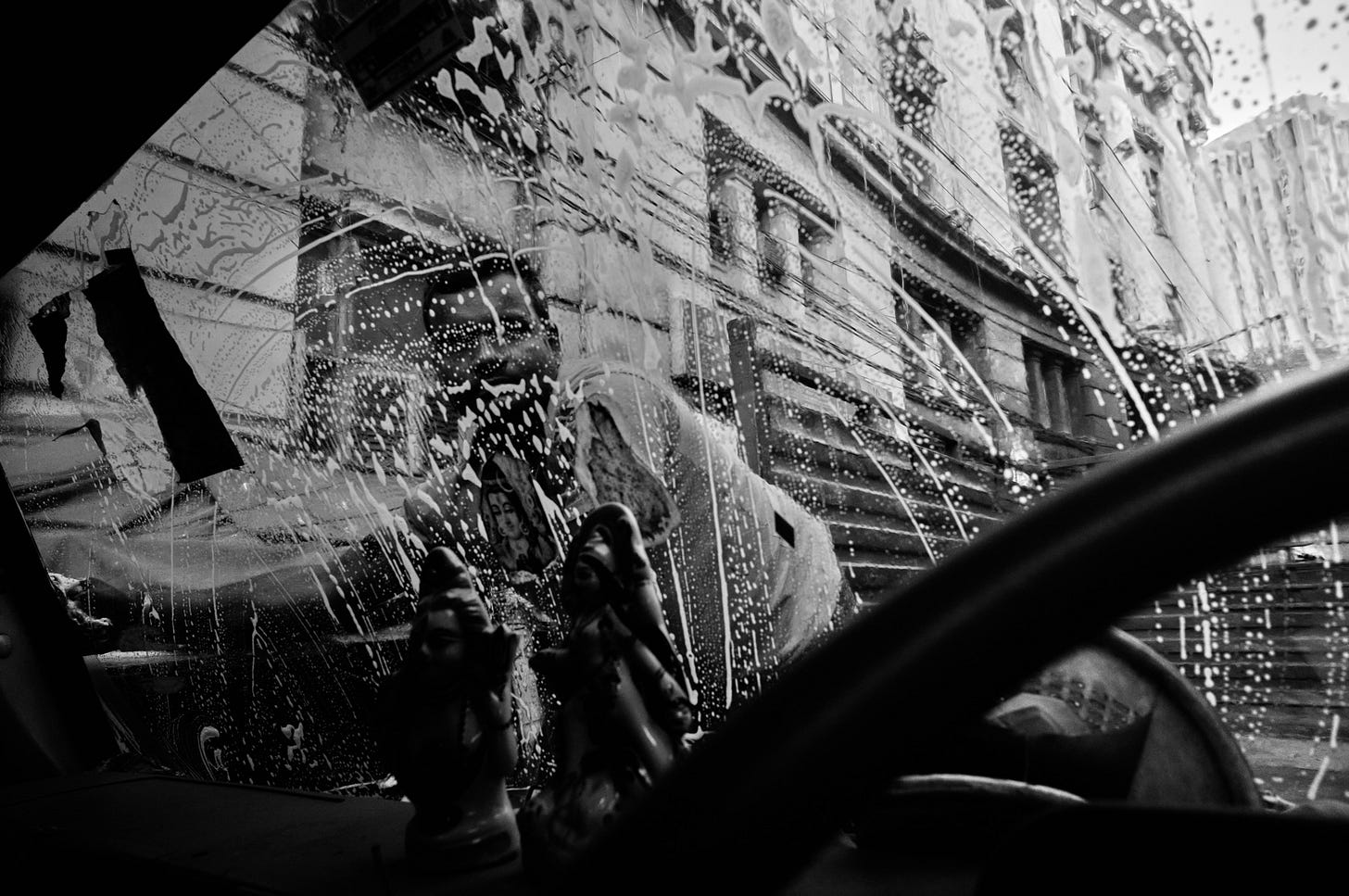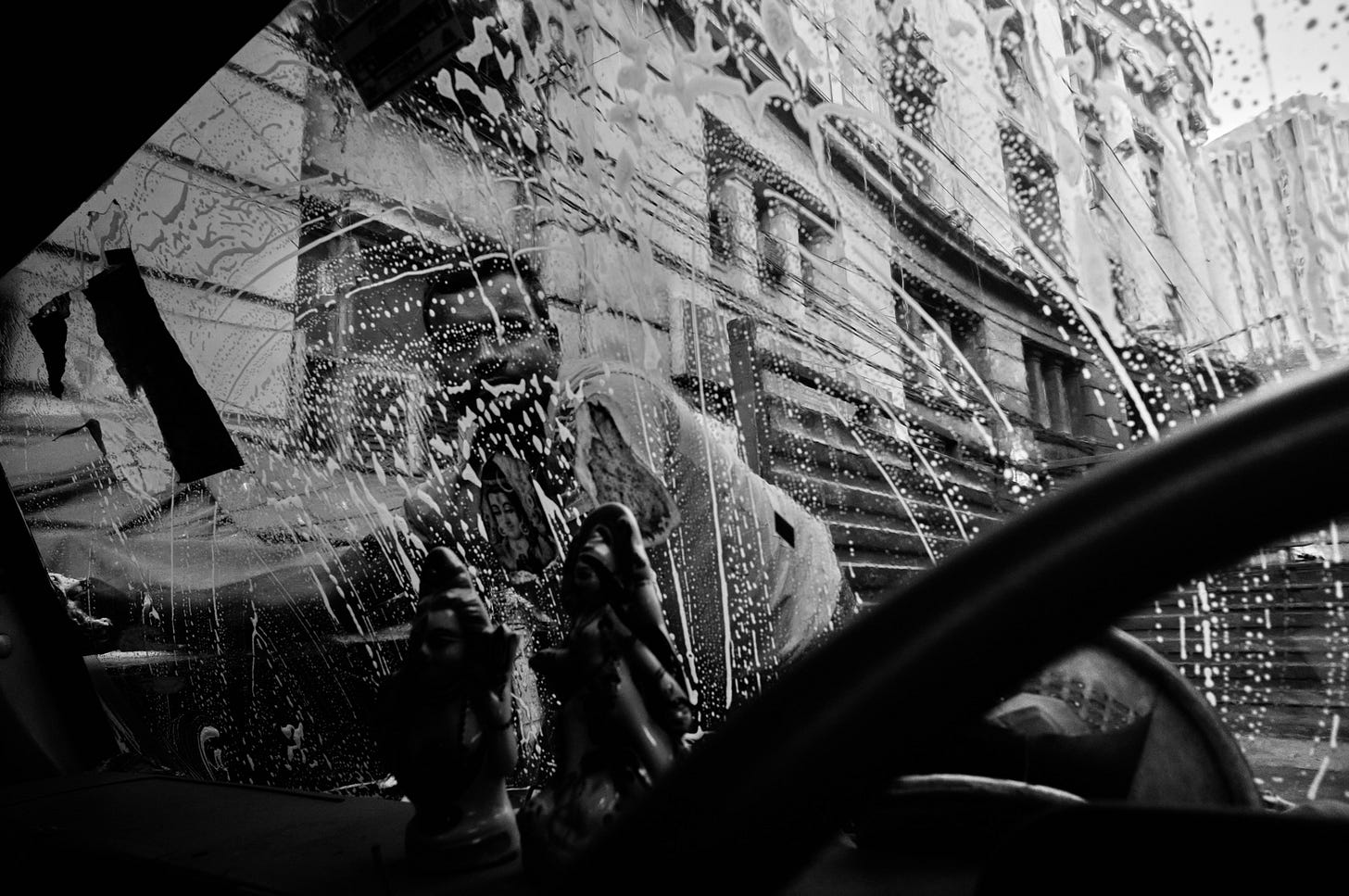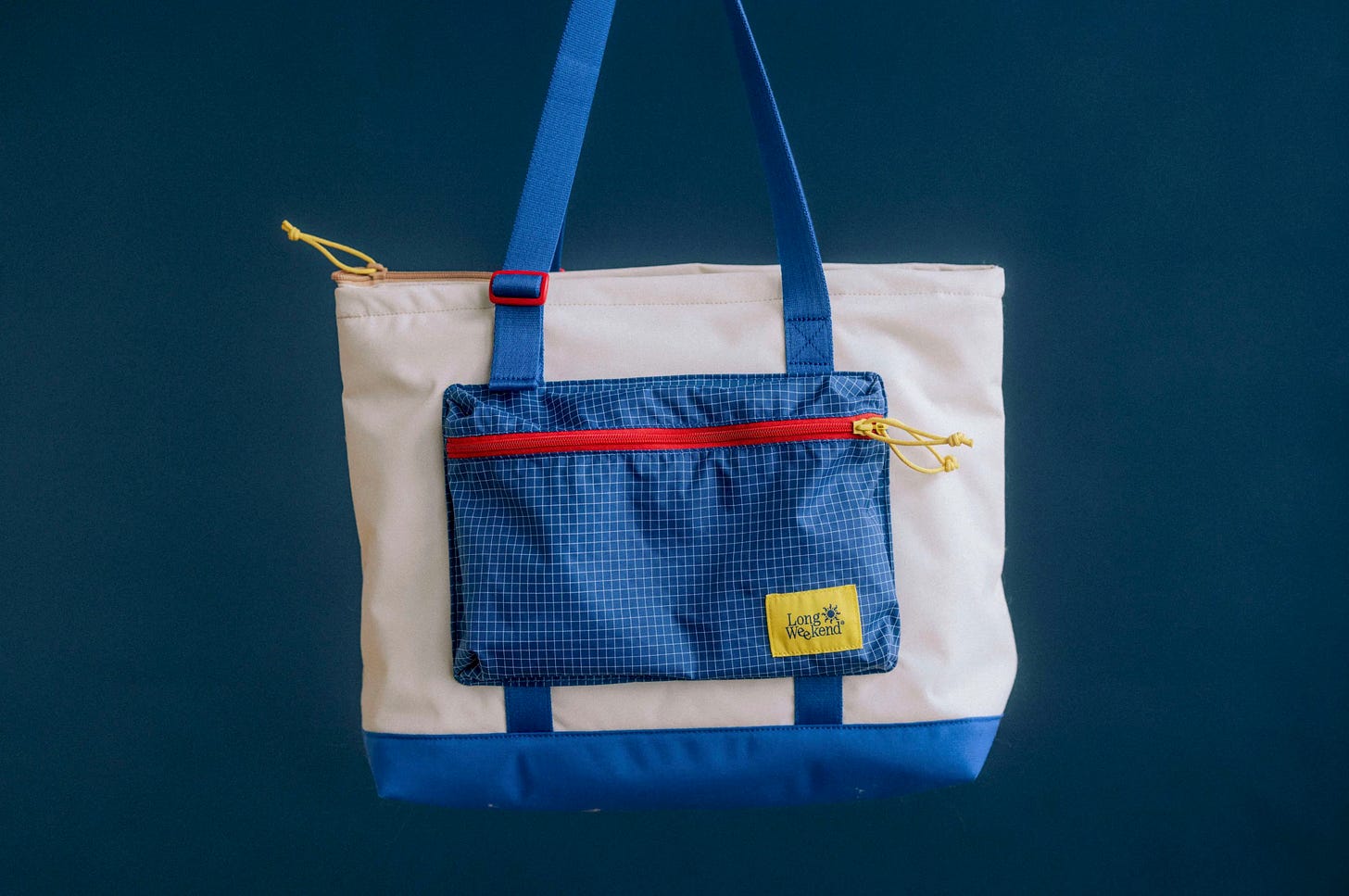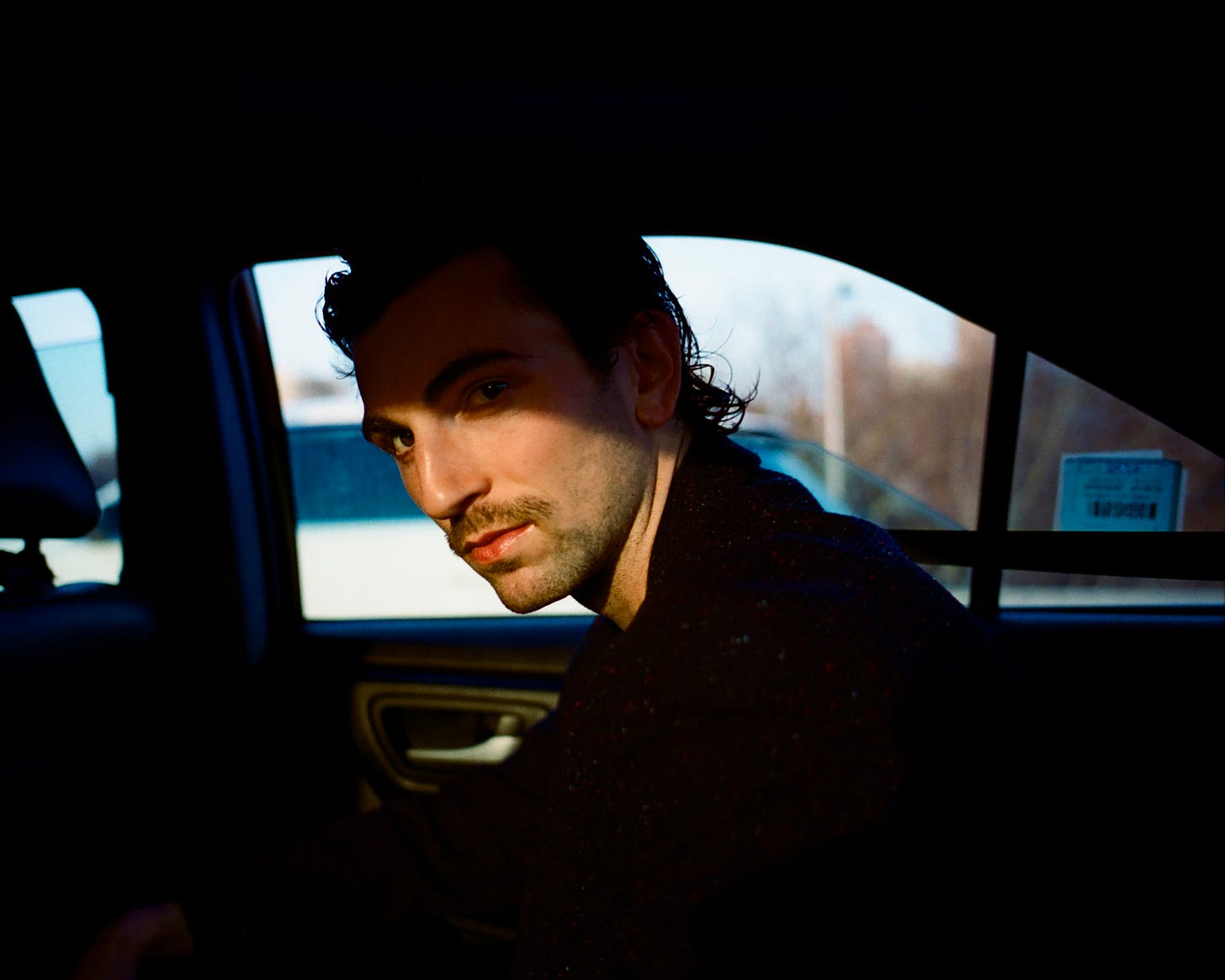Don’t Overthink the Composition
Developing a feel for the photograph
Last year, I got to spend some real time with the 21mm focal length on my Leica M11 and for those unfamiliar, unless you’re looking through the back LCD or a dedicated viewfinder, you won’t see the 21mm frame lines through the rangefinder of a Leica M camera. So, how on earth do you compose the shot?
The Details
This image was captured in the streets of Kolkata last year. I snapped it with a Leica M11 Monochrom and Summilux 21mm F1.4 that I had on loan from Leica USA. The settings? Well, this where I f*cked up. I set my aperture to F11 this morning to really catch all the depth I could but during my walk, I accidentally knocked my shutter dial from A to 4,000. The result is an image that was captured at a shutter speed of 4,000 and ISO of 12,500 (instead of what should’ve been around 500 and 400, respectively).
Settings like this would typically ruin the shot. Especially on a colour sensor. But here I am—having spent many evenings over several months just studying this photo—and I find myself just appreciating the happy accident. The moment is preserved and the texture is doesn’t detract from the story. It works. Maybe the next post should be, don’t overthink your camera settings?
The Story
When you start your photography journey, it’s important to understand composition. You should study it from the images of your favourite photographers and practice it with intention when you’re out with your camera. But eventually, you need to rid yourself from the training wheels of grid lines and start listening to your instincts.
If you’re asking me, you should be thinking about the story of an image when you raise your camera and not some formulaic approach to positioning the elements. So often, I come across individuals that are too focused on the grid of their camera screen to position a moment. And look, that’s fine to a degree but what I’m championing is that you work to move from that into a place where you start to feel the composition without the need for visual aids.
As you spend years honing your craft, you’ll naturally develop a sense for composition. With enough practice, you start to feel it more than you see it. You may even find yourself in a place where you’re landing shots that have the ingredients of a great composition and you’re just refining it in post. With respect to the photo above, I didn’t have any grids or frame lines to help with the composition. I had to feel it out.
I saw this subject washing his windshield, we exchanged eye contact and in a way where he knew that I was gonna photograph him. I pre-focused my lens (knowing that I had plenty of depth to work with) and jumped into the driver side. I looked through the rangefinder and started to feel for the composition. There’s a weight that I intentionally pushed to the bottom left of the frame, opposing elements at the top-left and bottom-right, with strong highlights in the top-right for this opposing ‘force’ of light. With my subject following a rhythmic process, I just had to wait until I felt like he was in the right spot; a place where his face pushed to the left and aligning with the other faces in the bottom-middle of the frame. And hell, a little luck didn’t hurt.
Now, that paragraph above is either incomprehensible or made complete sense. When I was typing it out, I did my best to transport myself back to this moment and shared what I was feeling. The key word here is ‘feeling’ because I wasn’t thinking those things. I was shifting and moving to what I felt could make for a compelling photo.
My main takeaway for you is that composition can be overrated. It can work against us. It’s often too restrictive and doesn’t let us play. Sure, it’s valuable to learn and understand as you move through your creative journey. But if you’re asking me, don’t overthink composition. Turn off your visual aids, prioritize the story of the image, and try to feel for the composition when you’re in the moment.
New March Contest!
Each month, I run a contest for the Church & Street Foto Club and try to feature something that I believe people will appreciate.
For March, I’ll be giving away the Long Weekend Beacon Tote Bag and Everyday Zip Pouch. Sometimes you just want a durable bag to throw your stuff in and head out the door. This tote bag from the Moment team is something that does that and is built to last. Plus it doesn’t hurt to have an extra pouch to organize some essentials.
How am I picking the winner? All you have to do is be a member of this community and leave a comment on this post. As with every contest, I’ll be randomly picking one person, confirming they meet the requirements and then contacting them directly before announcing the winner publicly.
Once again, this contest is void where prohibited by law. Good luck!
My thanks to the team at Moment! Not only for this contest but for being the longest supporter of my work online. They’re a lean team of passionate creators that truly believe in supporting other creatives on their journey. Whether it’s a new camera, lens, workshop, or just some great articles, visit ShopMoment.com today.
Reader Question: Do you still shoot film? And when would you choose it over digital?
Yes, I still shoot film and I reserve it for two specific instances. One, when there’s a project or client that demands film, where the medium contributes to the story in a meaningful way. This has become quite rare for me but it does happen time to time.
Most of my film shooting nowadays is done purely for the joy of it with friends and family. If I have a film camera on me, it’s usually during events, parties, and family gatherings. These moments that aren’t about some book or project. Moments that are more personal.
Sometimes it feels like you need to pick one side or another. That doesn’t make sense to me. Instead, I think you should pick what’s best for the moment. And for those intimate experiences with loved ones, I really enjoy documenting it with film.
What’s Next?
I’m back from New York and wrangling a bunch of deliverables. Without sounding too cryptic, the next three months are gonna have a huge impact on what the rest of the year looks like. And as a result, what you’ll be reading here. So, I’ll be taking a few weeks to map out the key priorities and hit pause on any travel plans until May. But let me tell you, the next trip is definitely gonna be one for the books.
Anyway, that’s enough for this week. Thank you all for reading. See ya next time!
GB






I often tell people, that after you learn all the basics; the hard part is throwing it all away and just shooting for the gut. I agree man it's important to be lose and free with you photography, being to structure doesn't allow for your true individuality to shine true (in my humble opinion).
Great story, equally great shot. I need to try that 21.
Cheers 🤙🏼
Loved this story and sharing the moment! I think you did a great job transporting us there and always appreciate a little backstory with a photograph.